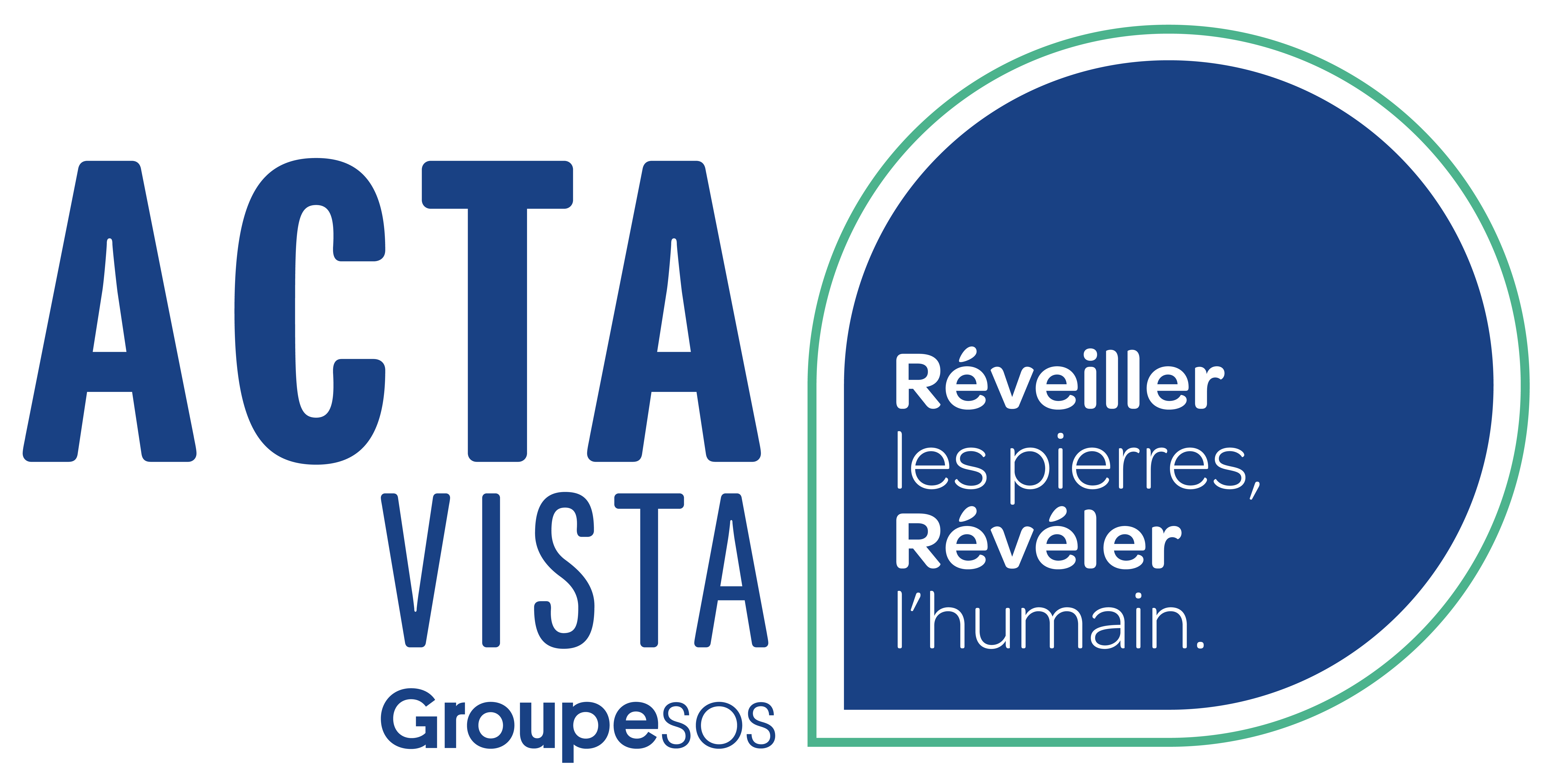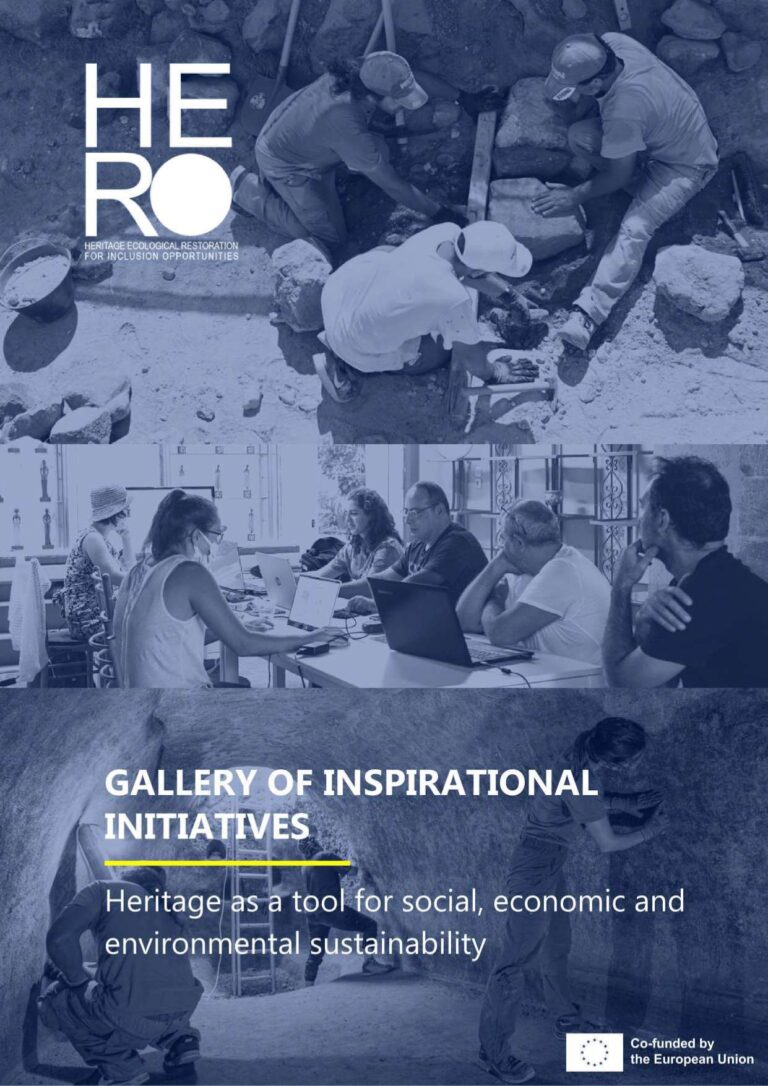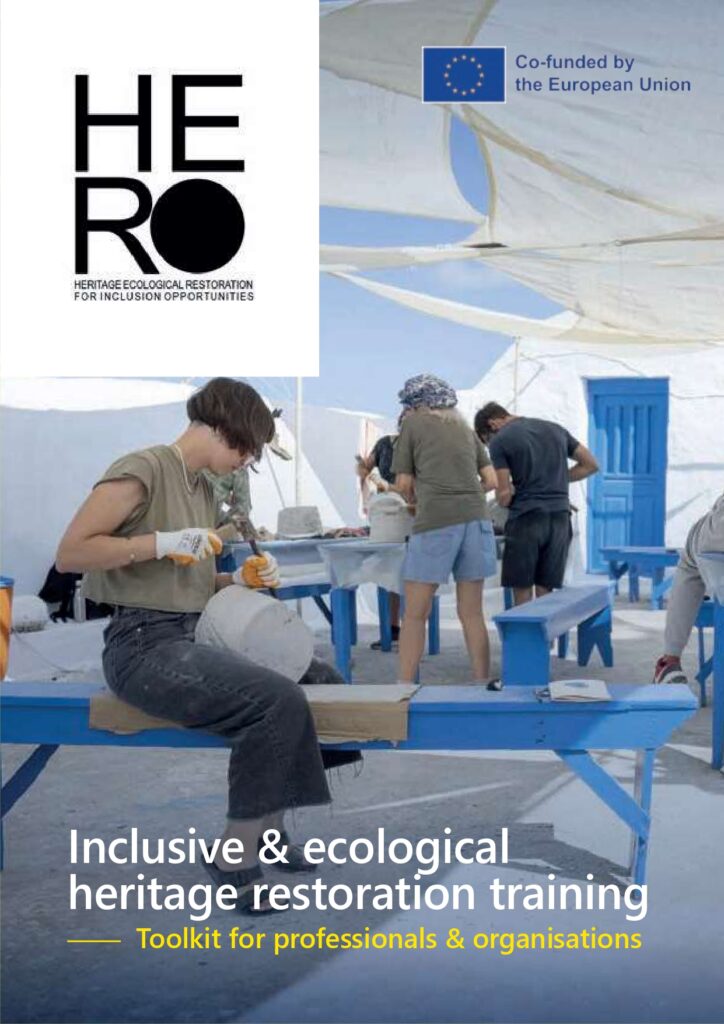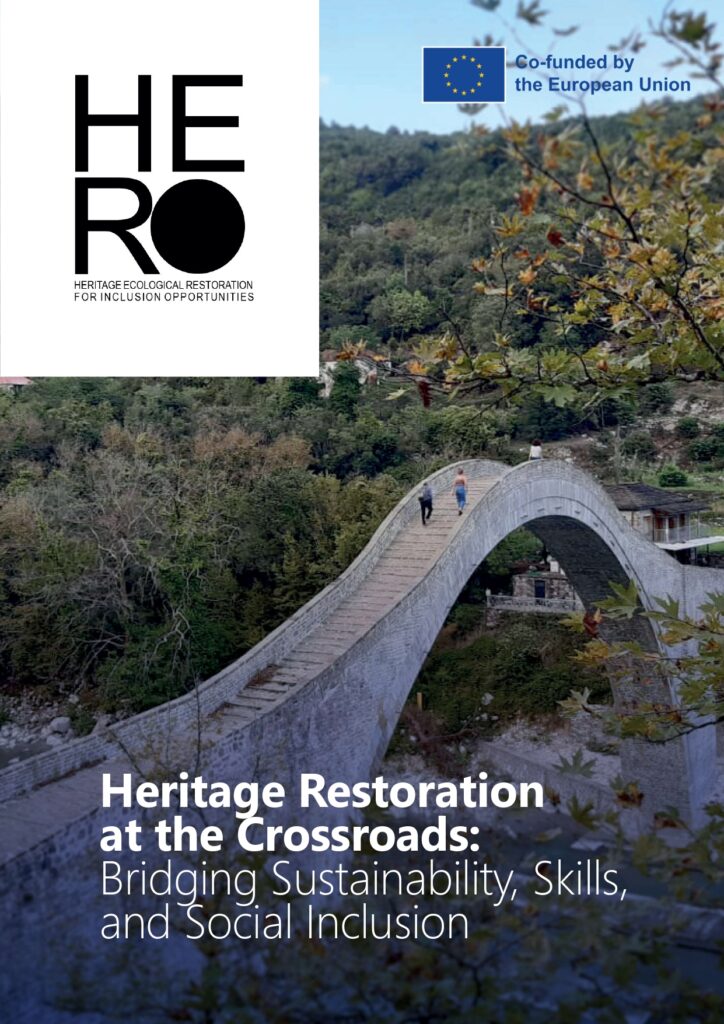Erasmus+ HERO project
Heritage Ecological Restoration For Inclusion Opportunities
European cooperation to support the development of more inclusive and sustainable heritage restoration trainings
Between 2021 and 2024, ACTA VISTA has been coordinating the HERO project : an Erasmus+ strategic partnership wearing on the test and the development of innovative pedagogical methods in the field of built heritage restoration. This project associated :
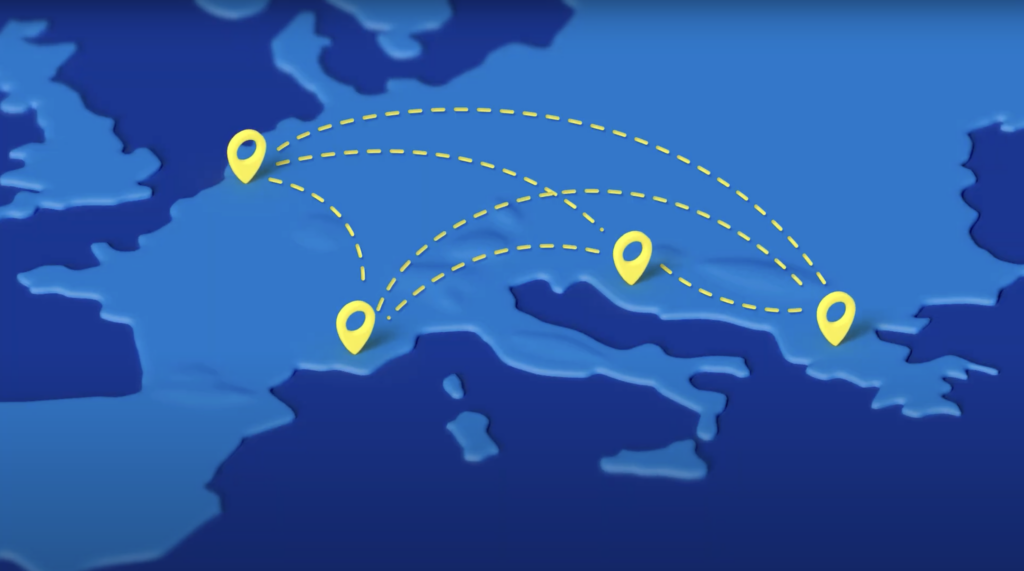
Discover the project in video !
This project aimed at training trainers in the field of built heritage restoration, especially on the inclusion of people in precarious situation and also focusing on eco-friendly techniques. This cooperation allowed us to develop :
- A mapping of innovative and inspiring examples in Europe and the Mediterranean area, combining heritage restoration, training, social inclusion and sustainable development
- 2 experimental training for trainers to test, evaluate and improve training methodologies in the field of heritage restoration
- A trainer toolbox gathering methodological guidelines, tips and trics, and ready-to-be-used training material as well as a serie of video tutorials to make heritage restoration trainings more inclusive and eco-friendly
- An advocacy campaing at the European level proposing a set of recommendations to invite the heritage restoration sector to become more inclusive and sustainable
- A serie of 4 international events in France, Greece, Croatia and Belgium to bring together the European heritage community around the values promoted by the project
Find out about the project results !
Europe and the Mediterranean are full of inspiring initiatives combining heritage with education, social inclusion, and ecological transition.
This region of the world is home to the largest number of UNESCO World Heritage sites. However, many historical sites are threatened with deterioration, or even disappearance.
Rather than viewing heritage restoration as an economic burden, the HERO project encourages considering heritage as an important resource for economic growth, employment, and social cohesion, as it provides an opportunity to revitalize and energize the surrounding urban or rural areas, and promote more sustainable tourism.
In this mapping, you will find 15 inspiring and innovative initiatives in France, Albania, Greece, Slovenia, Croatia, Belgium, Serbia, Lebanon, Morocco, and Algeria.
This booklet contains an analysis of the different models adopted by the organizations behind these projects, as well as the local and national factors that enabled their emergence.
This toolkit is the result of nearly 3 years of work experimenting, testing, evaluating, and adjusting inclusive and ecological training methods for heritage professions.
It contains:
- A theoretical approach to training with vulnerable individuals as well as eco-construction
- Guidelines and methods to implement on a worksite to transform it into a learning and integration platform
- Tips and tricks to reduce the carbon footprint of a worksite
- Ready-to-use tools and detailed, step-by-step activity sheets to replicate the approach developed in the project
- A series of tutorial videos illustrating the activity proposals
It is primarily intended for managers of historical sites and restoration projects, as well as training and socio-professional support teams. Lastly, it may interest engineers, architects, site managers, and technical teams wishing to explore eco-construction techniques and the use of natural materials.
HERO tutorials
6 years after the European Year of Cultural Heritage (2018), 4 years after the launch of the New European Bauhaus (2020), and 1 year after the conclusion of the European Year of Skills (2023), the European policy framework addressing heritage, education, and environmental issues is evolving.
The opportunity to combine these topics, as analyzed in our mapping and replicable through our toolkit, the project also proposes an advocacy action to inspire systemic change in this field.
This advocacy provides an overview of various European policies and initiatives, as well as the texts that govern them. It also lists several recommendations to advance this sector towards greater inclusivity and environmental consideration.
How about staying in touch?
Stay informed about our latest news, upcoming events and more.
Your email address is only used to send you newsletters about our business. You can use the unsubscribe link integrated in the newsletter at any time. To find out more about your rights, please consult the personal data protection charter.
ACTA VISTA is an association of the Groupe SOS


ACTA VISTA
Fort d’Entrecasteaux
1, bd Charles Livon 13007 Marseille France
Phone : +33 (0)4 91 72 79 00
Fax : +33 (0)4 91 72 44 82
Email : contact@actavista.fr
